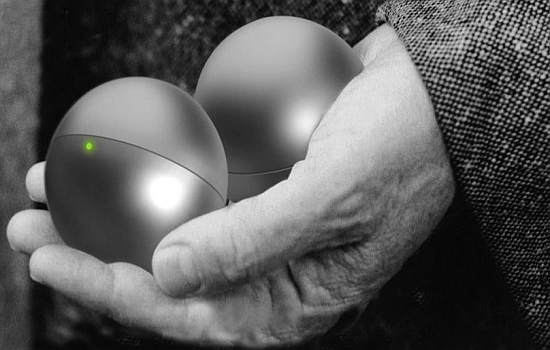There are some stories you just cannot say no to. When this one popped up in my inbox today, it was physically impossible for me to say no. It would have personally hurt me to turn this down. So yeah, this is happening.
Look down at your balls! (Or at someone else’s. I’m not choosy.) Make note of the size, because according to researchers at Emory University (via BBC News), the size of a man’s testicles is actually related to how committed he is as a parent.

The study, in Proceedings of the National Academy of Science, looked at the relationship between testicle size and fatherhood in 70 men who had children between the ages of one and two. The team at Emory University in Atlanta performed brain scans while the men were shown pictures of their children.
It showed those with smaller testicles tended to have a greater response in the reward area of the brain than those with a larger size. MRI scans showed a three-fold difference between the volumes of the smallest and largest testicles in the group. Those at the smaller end of the spectrum were also more likely, according to interviews with the man and the mother, to be more active in parenting duties.
So for those of you keeping score, here’s a handy little size-comparison chart to help you figure out the corresponding parental skills:
- Pea-sized balls: BEST PARENT EVER!
- Grapes: Still a pretty good parent. Enjoy your silver medal.
- Kiwis: Meh. Your kids’ll be fine. Not great, but fine.
- Apples: Your youngest child will write a memoir about you. They will not be kind.
- Oranges: You . . . You monster.
- Melons: Congratulations! You’re Joe Jackson.
 Why you can trust Xtra
Why you can trust Xtra


